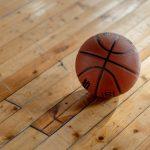How to Develop a Hungry Mindset in Sports
How Can You Improve Your Mindset? Many athletes reach a point where they believe they have maxed their potential or can no longer improve. Some set career goals, and when they accomplish their objective, they become satisfied and lose their motivation to achieve more. For instance, maybe you set a goal of playing in college. Throughout high school, … Sport Psychology Article…






